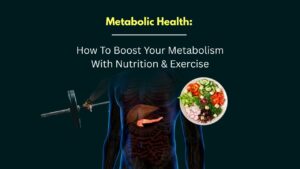
Yashvi Chheda
Bariatric Dietician & Content Writer

Why Supplements are Important Post Surgery and Which Ones to Take

Proper nutrition plays a crucial role in the recovery process from illness, injury, or surgery. It provides the body with essential nutrients, energy, and building blocks necessary for tissue repair, immune function, and overall healing. Here are several reasons why proper nutrition is important during recovery:
Tissue Repair and Wound Healing
Enhanced Immune Function
Reduced Inflammation
Increased Energy Levels
Optimal Nutrient Absorption
Prevention of Nutrient Deficiencies
Muscle Preservation and Strength
Mental Well-being
Key Nutrients for Post-Surgery Healing
Vitamin C:
Vitamin C, also known as ascorbic acid, plays an essential role in the body’s overall health and well-being. After bariatric surgery, which involves reducing the size of the stomach or rerouting the digestive system, there are a few reasons why vitamin C is particularly important:
Wound healing, immune function, and iron absorption.
Vitamin D:
Calcium Absorption and Bone Health: Vitamin D aids in the absorption of calcium from the intestine. After bariatric surgery, especially procedures involving the small intestine, calcium absorption may be compromised. Vitamin D helps optimize calcium absorption, which is essential for maintaining strong bones and preventing conditions like osteoporosis.
Bone Remodeling: Vitamin D plays a crucial role in bone remodeling, which is the ongoing process of bone formation and resorption. After bariatric surgery, there may be an increased risk of bone loss due to reduced nutrient absorption and changes in hormone levels. Adequate vitamin D levels can help support bone remodeling and minimize the risk of bone-related complications.
Immune Function: Vitamin D is involved in modulating immune function and reducing the risk of infections. Post-bariatric surgery, the body may experience changes in immune system function, and maintaining sufficient vitamin D levels can help support immune health and reduce the risk of infections.
Nutrient Absorption: Bariatric surgery alters the digestive system’s anatomy, potentially impacting the absorption of various nutrients, including fat-soluble vitamins like vitamin D. Ensuring adequate vitamin D intake and monitoring blood levels are crucial to prevent deficiencies and maintain overall health.
Zinc:
It’s important to note that zinc deficiencies are relatively common even before bariatric surgery, particularly in individuals with obesity. Therefore, assessing zinc status through blood tests and working with a healthcare professional, such as a registered dietitian or bariatric surgeon, is essential to determine the appropriate zinc intake and supplementation requirements based on individual needs.
Magnesium:
Magnesium benefits post-surgery, how magnesium can help with muscle relaxation and stress reduction during recovery period. In one study, 6 week supplementation with 400 mg of magnesium as magnesium glycinate was effective at raising plasma magnesium readings in people who have had bariatric surgery (comparison made pre-surgery to 6 weeks post-surgery).
Iron:
Iron is a critical component of red blood cells, which carry oxygen to various tissues and organs in the body. After bariatric surgery, there may be a higher risk of iron deficiency due to reduced stomach size, decreased acid production, and alterations in the gastrointestinal tract that affect iron absorption. Adequate iron intake is essential to prevent iron deficiency anemia, which can lead to fatigue, weakness, decreased immunity, and impaired cognitive function.
B complex vitamins:
B complex vitamins, including thiamine (B1), riboflavin (B2), niacin (B3), pantothenic acid (B5), pyridoxine (B6), biotin (B7), and cobalamin (B12), are essential for energy metabolism. They help convert food into usable energy at the cellular level. After bariatric surgery, ensuring sufficient intake of B complex vitamins supports optimal energy production and prevents fatigue and weakness.
B vitamins, including thiamine (B1), riboflavin (B2), niacin (B3), and pantothenic acid (B5), are necessary for tissue repair and wound healing. After bariatric surgery, ensuring adequate intake of B complex vitamins supports the healing process of surgical incisions and tissues, reducing the risk of complications.
B vitamins are crucial for the proper functioning of the nervous system. They play roles in nerve signal transmission, the production of neurotransmitters, and the maintenance of healthy nerve cells. After bariatric surgery, maintaining adequate B complex vitamin levels is important to support nerve health and prevent potential neurological complications.
Protein:
Protein is essential for wound healing and tissue repair. After bariatric surgery, the body needs adequate protein to support the healing process of surgical incisions, promote cell regeneration, and repair tissues that may have been manipulated during the procedure.
Protein is crucial for maintaining and building lean muscle mass. Adequate protein intake supports muscle maintenance and growth, helping individuals preserve their muscle mass and prevent muscle wasting.
Protein has a satiating effect, meaning it helps promote feelings of fullness and satisfaction after a meal. Adequate protein intake post-bariatric surgery can aid in appetite control, preventing overeating and supporting long-term weight management goals.
Protein plays a role in enhancing the absorption of certain nutrients, such as iron and calcium.
Protein has a higher thermic effect compared to carbohydrates and fats, meaning it requires more energy for digestion and metabolism. This can help support metabolic rate and calorie expenditure, potentially aiding in weight loss or weight maintenance after bariatric surgery.
Omega-3 fatty acids:
Omega-3 fatty acids, specifically eicosapentaenoic acid (EPA) and docosahexaenoic acid (DHA), play important roles in the body and can have specific benefits after bariatric surgery.
Omega-3 fatty acids have been extensively studied for their cardiovascular benefits. They can help lower triglyceride levels, reduce blood pressure, improve endothelial function, and decrease the risk of cardiovascular diseases. After bariatric surgery, which can have positive effects on cardiovascular risk factors, omega-3 fatty acids can further support heart health and overall cardiovascular well-being.
Bariatric surgery, depending on the procedure, can impact the absorption of fats, including omega-3 fatty acids. It’s important to ensure adequate intake of omega-3 fatty acids through dietary sources or supplements to meet the body’s needs. Omega-3 fatty acids are essential fats that need to be obtained from the diet since the body cannot produce them on its own.
Why They Matter -
Following bariatric surgery, the stomach becomes smaller, which affects the appetite.
Additionally, patients are kept on fluid and soft foods throughout the healing process to prevent acid reflux and promote stomach healing.
Therefore, supplements are advised for a specific period of time to make up for the lack of nutrients.







